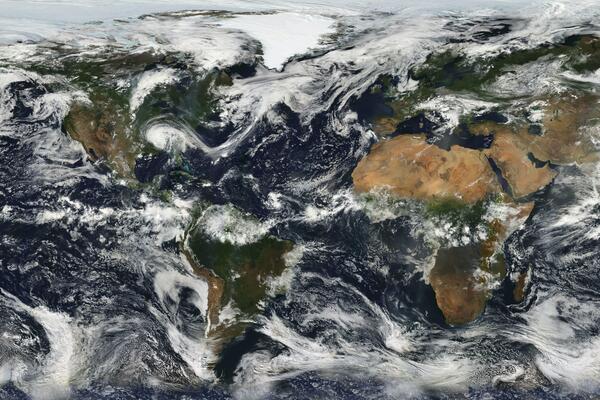
A pivotal moment in our collective goal to limit global warming
Waterloo sends an in-person delegation to COP27 to witness the international negotiations

Waterloo sends an in-person delegation to COP27 to witness the international negotiations
By Chantal Vallis Waterloo Climate InstituteThis September, Hurricane’s Ian and Fiona underscored what we already know — extreme weather events are increasing in frequency and severity. These events displaced approximately 30 million people worldwide in 2020, and this number is expected to increase in the coming decades because of climate change.
We are at a pivotal moment in our collective goal to limit global warming to 1.5 degrees. The conversations, agreements and actions taken now will impact our immediate and long-term collective future. For this reason, the meeting of the world’s leaders in Sharm El Sheikh, Egypt, from November 6 to 18 for the climate change negotiations at the United Nations Framework Convention on Climate Change (UNFCCC) annual Conference of the Parties (COP) is more critical than ever. Leadership, citizen engagement and global attention are of the utmost importance to push for action.
The University of Waterloo, through the Waterloo Climate Institute, has been an official observer of the conferences for many years. For COP27, the institute will send an in-person delegation of top student leaders and faculty researchers to represent the University, bear witness to the negotiations and foster an informed conversation about the climate crisis at Waterloo.
Dr. Zahid Butt, a professor in the School of Public Health Sciences, and Alexandra Ho, Master of Climate Change student, are currently in Sharm El Sheikh to observe the first week of the negotiations. Dr. Sarah Burch, Waterloo Climate Institute’s executive director, and Isra Saeed, PhD candidate in sustainability management, will participate in the second week.
Mirroring the interdisciplinary nature of the Waterloo Climate Institute and the complexity of the climate crisis, the delegates bring a range of expertise to the conference spanning the topics of health, governance, energy, and communications. Their attendance offers the broader Waterloo community a deeper understanding of the negotiations process and to understand the key takeaways as the world comes together in Egypt to tackle the most pressing issue of our time.

Read more
New QS World University Ranking measures environmental and social impact

Read more
Dr. Chris Fletcher is part of a scientific consortium developing satellite technology to better understand climate change

Read more
Interdisciplinary course on climate change open to undergraduate students
The University of Waterloo acknowledges that much of our work takes place on the traditional territory of the Neutral, Anishinaabeg, and Haudenosaunee peoples. Our main campus is situated on the Haldimand Tract, the land granted to the Six Nations that includes six miles on each side of the Grand River. Our active work toward reconciliation takes place across our campuses through research, learning, teaching, and community building, and is co-ordinated within the Office of Indigenous Relations.